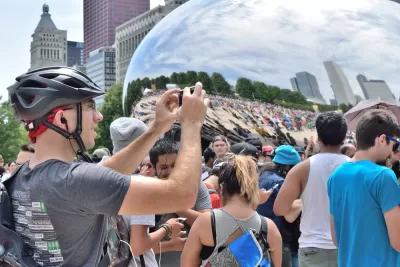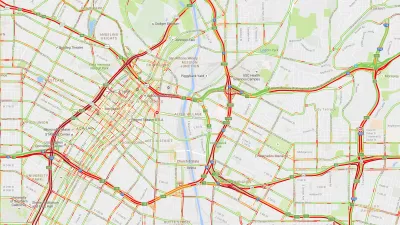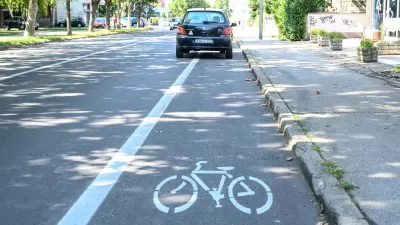A new startup wants to use blockchain and the Uber model to create free, open-source maps.

CityLab's Laura Bliss profiles a mapping startup that aims to combine blockchain and cryptocurrency, open data, and crowdsourcing and gig work. In other words, the company plans to pay people to contribute to free maps. Bliss reports:
"With $1 million in seed funding, Streetcred is building a business model based on the blockchain, where digital tokens called Ether—a Bitcoin-esque cryptocurrency with a fluctuating dollar value—would be paid out to contributors anywhere in the world to populate maps with new points of interest."
The company will only map places, not routes. It hopes to compete with the current industry king, Google Maps, by making its service free to the developers, government agencies, and companies that currently pay Google up to thousands of dollars a month. Though still "refining" its business model, Streetcred says it would make money by soliciting "sponsorships" from companies like Uber or Apple to map points of interest in regions with less coverage from other services.
It could also save money by paying contractors in an unguaranteed currency rather than hiring employees.
In CityLab, Bliss compares the startup's model to other mapping platforms, companies relying on gig workers, and data services.
FULL STORY: Like Uber, but for Cartographers

Alabama: Trump Terminates Settlements for Black Communities Harmed By Raw Sewage
Trump deemed the landmark civil rights agreement “illegal DEI and environmental justice policy.”

Study: Maui’s Plan to Convert Vacation Rentals to Long-Term Housing Could Cause Nearly $1 Billion Economic Loss
The plan would reduce visitor accommodation by 25% resulting in 1,900 jobs lost.

Why Should We Subsidize Public Transportation?
Many public transit agencies face financial stress due to rising costs, declining fare revenue, and declining subsidies. Transit advocates must provide a strong business case for increasing public transit funding.

Wind Energy on the Rise Despite Federal Policy Reversal
The Trump administration is revoking federal support for renewable energy, but demand for new projects continues unabated.

Passengers Flock to Caltrain After Electrification
The new electric trains are running faster and more reliably, leading to strong ridership growth on the Bay Area rail system.

Texas Churches Rally Behind ‘Yes in God’s Back Yard’ Legislation
Religious leaders want the state to reduce zoning regulations to streamline leasing church-owned land to housing developers.
Urban Design for Planners 1: Software Tools
This six-course series explores essential urban design concepts using open source software and equips planners with the tools they need to participate fully in the urban design process.
Planning for Universal Design
Learn the tools for implementing Universal Design in planning regulations.
Caltrans
Smith Gee Studio
Institute for Housing and Urban Development Studies (IHS)
City of Grandview
Harvard GSD Executive Education
Toledo-Lucas County Plan Commissions
Salt Lake City
NYU Wagner Graduate School of Public Service




























